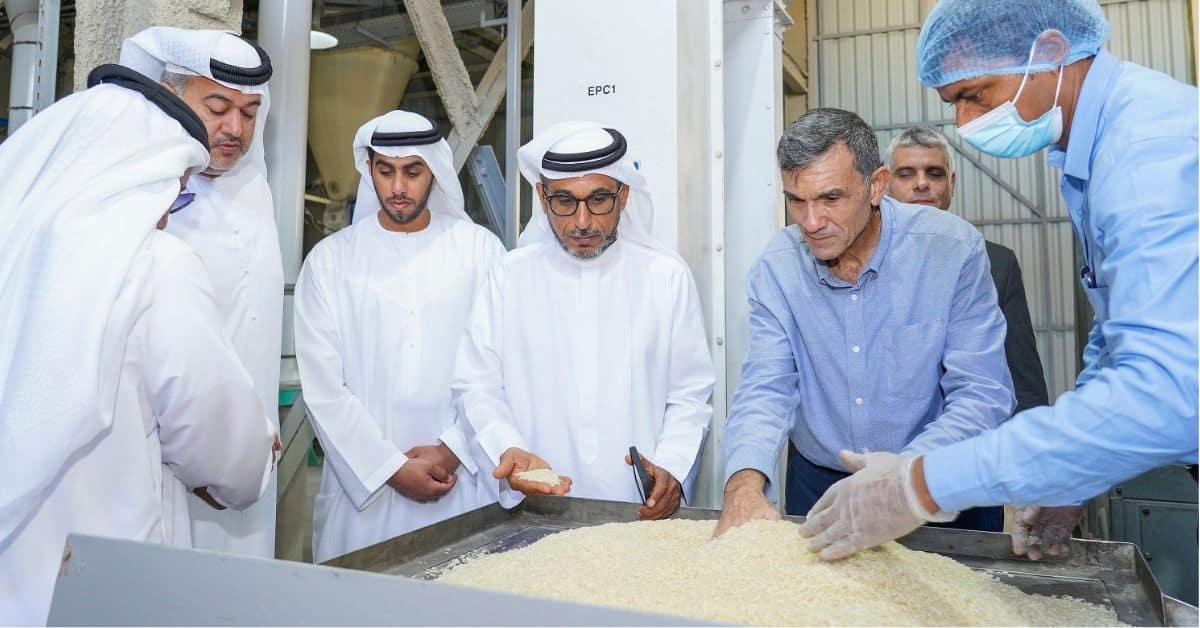Among the various risks and difficulties that prevent the Arab world from achieving its economic and social security, food security is the most pressing.
Therefore, GCC countries seek to lay the foundations for resolving the crisis, confronting it, and limiting the increase in the food gap. Providing the individual’s food needs and then achieving self-sufficiency in various food commodities.
According to Chandra Dake, CEO of Dake Rechsand: “The efforts from GCC nations, particularly the UAE and KSA, have been exemplary.”

The UAE has aligned food and water security goals with the national agenda, drawing attention to challenges, inviting dialogues, platforming innovations, and investing resources.
In an interview with TRENDS, Dake added: “Other nations follow suit by contemplating net-zero targets reconciled with food and water security goals. Saudi, too, has been ambitious in its projects, including the Middle East Green Initiative of planting 50 billion trees. Such action plans offer much in the way of optimism”.
As a result of Riyadh’s early recognition of the importance of achieving food security and directing it within its ambitious vision, the Kingdom has begun to shift from working to provide food for its society in the quantity and quality necessary to meet the needs of its members continuously for a healthy life.
The “Poverty Reduction and Food Waste” program is just one of eleven executive programs and over a hundred initiatives that make up the Kingdom’s food security policy.
Successes in food security in Saudi Arabia have accelerated since the Council of Ministers approved the food security strategy and its implementation plan after two recommendations prepared by the Council of Economic and Development Affairs. As a result, the Kingdom began to make progress, and reports began to monitor the rise in self-sufficiency rates in many strategic food commodities.
Official data also showed that the sufficiency rate of dates in the Kingdom reached 125 percent, poultry 60 percent, eggs 116 percent, fresh milk and its derivatives 120 percent, fish 55 percent, and vegetables 87 percent.
The significant progress in the volume of investment in the food industry in the Kingdom has exceeded 88.191 billion riyals through more than 1183 factories, which constitutes 6.12 percent of the total volume of investments in the industrial sector to the importance of agricultural output exceeding 61.4 billion riyals.
The elimination of hunger, the provision of food security and improved nutrition, and the promotion of sustainable agriculture all contribute to sustainable development and, by extension, to the stability and security of the state.
As for the importance of food security, it is evident during crises, as the world witnessed a decrease in income, a rise in food prices, and the deterioration of the global food supply chain as a result of the Covid-19 pandemic, according to the Food and Agriculture Organization in 2021.
The economic shocks resulting mainly from the pandemic led to acute food insecurity in terms of the number of people and countries affected by more than 40 million people in 17 countries/territories, up from 24 million and eight countries in 2019.
Here, Dake asserts: “Poverty requires a multidimensional analysis as it has many determinants. In GCC, residents have been fortunate to have supportive governments, which have averted an economic fallout even amid unprecedented crises”.
Yet, Dake believes that “inflation continues to snowball because of supply-chain disruptions, market economics, and inevitable circumstances. Therefore, it is an opportune moment to look inward, redress long-standing issues such as water and food scarcity, and build self-sufficiency”.
All these have substantial socioeconomic implications for the region and, by extension, its poverty alleviation.
How to maintain food security?
Dake explained that the achievability of sustainable food and water security hinges on bottom-up improvement, starting from the grassroots.
“Farmers, who are custodians of local food production, must be empowered with affordable and easy-to-implement solutions. Currently, top-level policies are not translating to tangible benefits at the grassroots. Governments must formulate policies to mobilize stakeholders and farming communities on the front lines. Subsidizing water-efficient agriculture solutions and encouraging participation could be conducive to food security in the long run,” he said.
Saudi Arabia, the United Arab Emirates, and Qatar are the only Arab countries in the top quartile of the “Access to Food” ranking, according to the recently released Global Food Security Report Q2 2022 by Deep Knowledge Analytics.
The Kingdom currently enjoys the largest storage capacities in the Middle East for wheat and flour, exceeding 3.3 million tons, with a daily grinding capacity of more than 15 thousand tons, in addition to the Kingdom reaping the fruits of its agricultural investments abroad, which was embodied last June with the arrival of the first wheat ship produced by the assets of the Saudi Agricultural and Livestock Production (SALIC) in Australia with a quantity of 60 thousand tons, within the amount contracted, which totals 355 thousand tons.
It also has comprehensive options in wheat sources through international tenders offered and tenders for Saudi investors abroad, for which 10 percent is allocated. From wheat purchases annually, in addition to purchasing local quantities from farmers within the controls of growing green fodder, which determine the cultivation area according to the size of each investor, to include 50 hectares (a hectare is equivalent to 10 thousand meters) or less for small farmers and between 50 and 100 hectares for the average, and more than 100 hectares businesses and farmers.

